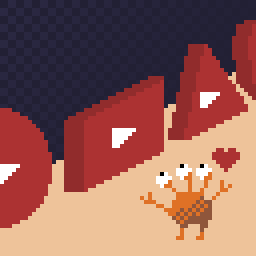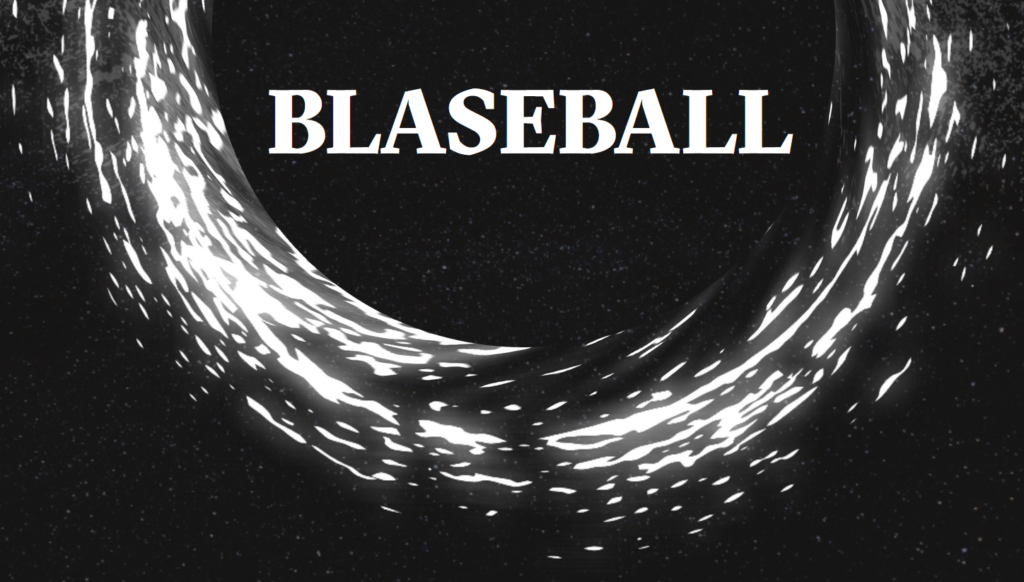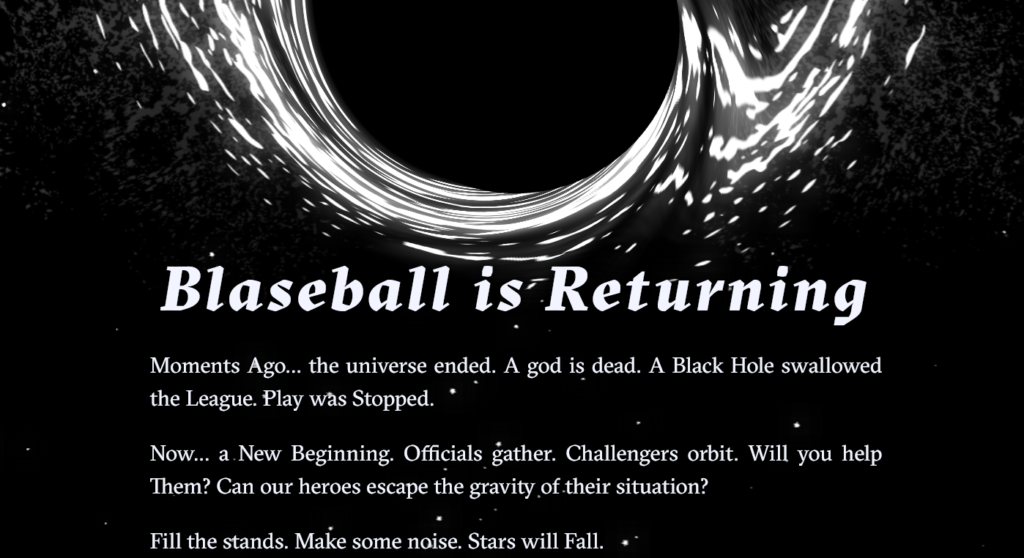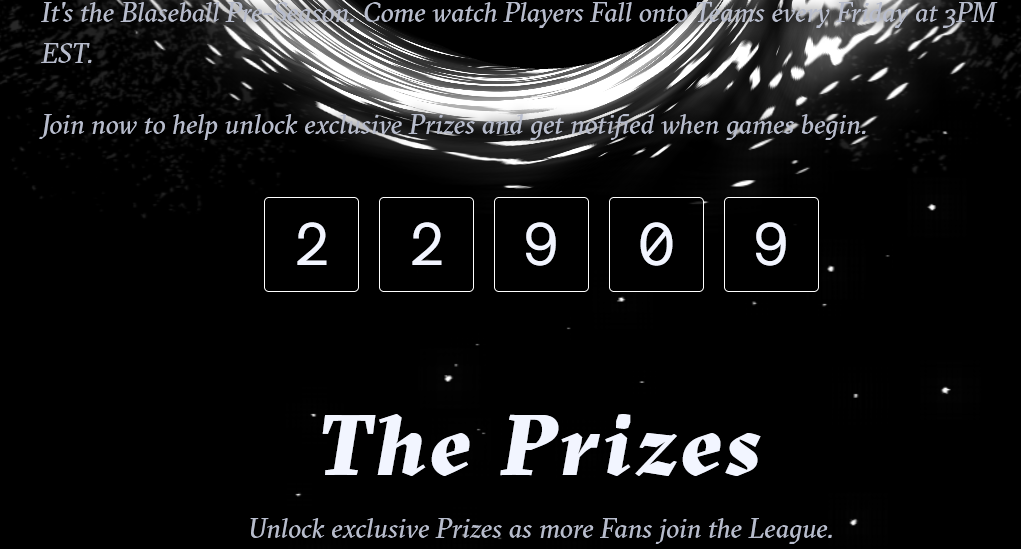It has now been over seven months since the end of Blaseball, that shining star of lockdown that burned brightly but ended suddenly. Stories will be told of its brief reign, and memories zealously hoarded. I’m amazed that no one else has definitively moved in to take its place with their own take on splorts, it seems to be an opportunity waiting to be filled, but until such time as it happens, the concept, along with the game itself, continues to Rest in Violence.
The planets orbiting Blaseball’s many suns continue to orbit, their surfaces unwarmed but still hosting faint signs of life. The Blaseball Wiki remains online, explaining the absurdly twisty intricacies of a game that no longer exists, and The Society for Internet Blaseball Research still hosts statistics and information related to that dearly missed pastime.
One of those planets is Blaseball Blexplained, a Youtube series that doggedly and diligently presented season recaps of Blaseball’s many crazy seasons. Since Blaseball’s ending, they’ve slowly continued their recaps, and have now finally finished their last Expansion Era summary, of the Hellmouth Sunbeams. It is around 16 minutes long. It present the final recantation of the nearly un-understandable events that marked the final seasons as did all the others, throwing out references to Black Holes, Feedback and Fax Machines, counting on you to know what the hell all those things mean. You do, don’t you? ‘Course you do.
So, one last broadcast from Blaseball Explained, favorite fake sport summary channel, now broadcasting exclusively to the Hall of Flame.
Farewell, Blaseball. In your memory, I proclaim: hail Namerifeht.
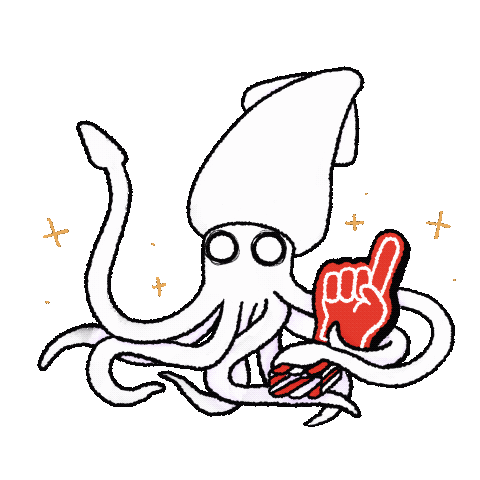
(Image from blaseball.com)
P.S. The Society for Internet Blaseball Research (SIBR) has a page of information on how the fates of Blaseball, early on, intersected with that of the Pacific Salmon Treaty of 1985, and of a mysterious face named by fans Salmon Steve. Here is that page.


